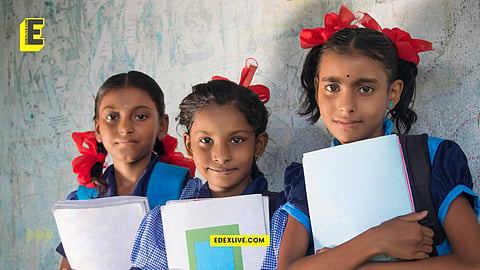

More girls aspire to continue studying after Class XII than boys, the Annual Status for Education Report, 2023 has revealed. The report is based on a survey and found that the reasons behind the trend included the girls' belief that education would enable them to become better homemakers and also their interest in studying, PTI reported.
In general, boys were able to take or at least shape these decisions: if they were not interested in studying further, they could drop out regardless of their family's preferences. Among girls, these decisions were often not in their hands, the report said. "In the ASER 2023 survey findings, a larger proportion of boys than girls reported not wanting to study after class XII. During the discussion, girls discussed wanting to study at least to undergraduate level, while boys talked about the likelihood of discontinuing their education after completing their schooling," the report said.
"Among girls, shifting social norms about the appropriate age of marriage emerged as a key driver of young women's ability to study further. Most girls talked about how they expected to get married only at the age of 21 or 22, giving them time to continue to study until then," it added.
"However, even though this perceived increase in the appropriate age of marriage enabled higher secondary and college level studies to be a socially acceptable pathway for these girls, further education was rarely connected to better preparedness for the job market," it said.
Beyond Basics
The ASER 2023 Beyond Basics survey was conducted in 28 districts across 26 states, reaching a total of 34,745 youngsters between the age group of 14-18 years. One rural district was surveyed in each major state, except for Uttar Pradesh and Madhya Pradesh, where two rural districts were surveyed.
ASER is a nationwide citizen-led household survey that provides a snapshot of the status of children's schooling and learning in rural India. Implemented in 2005, the basic ASER survey was conducted annually until 2014 and switched to an alternate-year cycle in 2016.
The 'basic' ASER collects information regarding the enrollment in preschool and school for children in the age group of three to 16 and assesses children aged five to 16 one-on-one to understand their foundational reading and arithmetic abilities. In the intervening years, ASER dives deeper into different aspects of children's schooling and learning in rural India.
Why did most girls actively desire to continue their education? The report says two major reasons emerged during the discussions with girls. "The first had to do with the view that education would enable them to become better homemakers. On being asked about the benefits of education, a girl in class X in Sitapur responded, We can learn how to manage a household, how to talk to others, how to present ourselves, and how to respect people around us. Exactly how more education would translate into this outcome was not always clear," the report said.
"Responses ranged from education providing a set of values that could be transmitted to children, to the possibility of combining further studies with vocational courses in beauty or tailoring, so that they could earn some income alongside their household responsibilities," it added, PTI reported.
